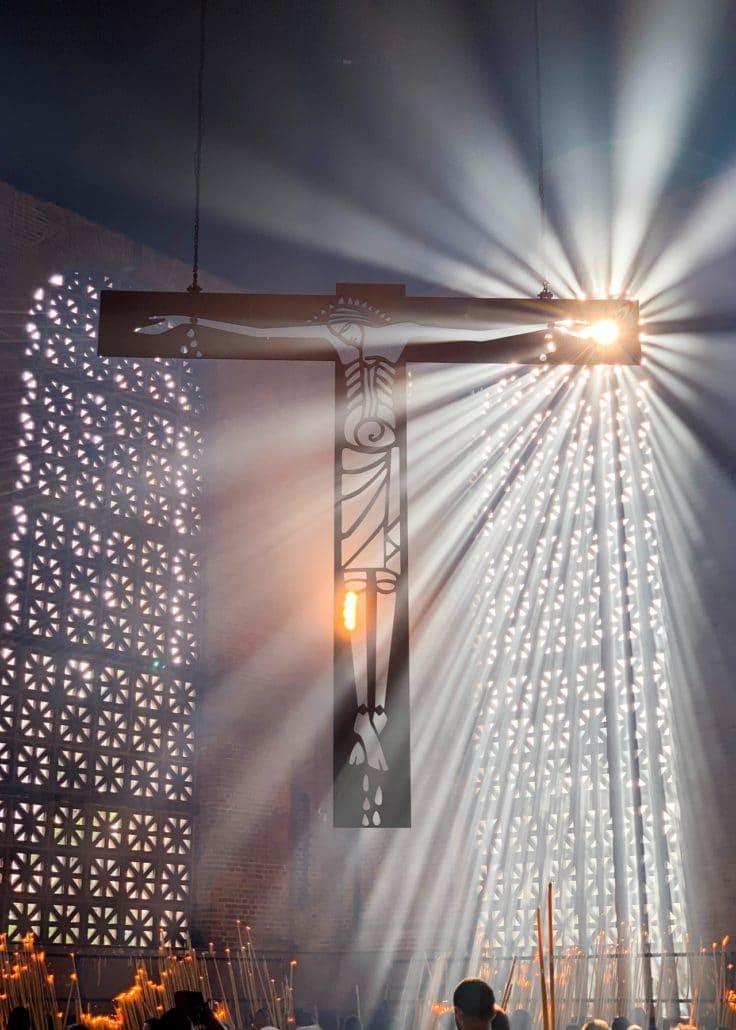The older I get, the more I dislike the story of Noah and the flood.
At the end of the story in Genesis 9, God promises to never flood the world again. Well that’s great, isn’t it? I mean, “Thank you for that promise, God, but I think one horrific act of violence is enough for me to have some serious trust issues with you.”
And my trust issues continue even after that promise because God says that God will remember the promise to not flood the earth again because the rainbow will remind him.
Now, I’m all for pretty rainbows, but does God really need a rainbow to appear as a reminder? The fact that God needs a rainbow to remind him that flooding the earth with catastrophic violence is a bad idea tells us that God has a horrible memory and some deep anger issues, which is not a great combination, especially when we’re talking about something as powerful as God.
Which leads me to wonder, what if God gets angry again and in God’s rage he doesn’t notice the rainbow off in the distance?
I don’t like this story. And I especially don’t like that we use it as a children’s story. I guess it’s cute that two of every animal go in the Ark, but it’s not cute that all the other animals get murdered by the God character in this story.
But, I wonder, is the God character in the story of Noah and the flood a good representation of who God actually is?
God’s Excuse: You Started It!
Here’s the biblical back story to the flood. It starts with humans getting caught up in cycles of escalating violence. One person hits another person, and that person seeks revenge by murdering the one who hit him. Then someone murders that person and his family. The imitative cycle of violence continues to escalate until *human* violence threatens our own extinction.
Do you remember when God created the world and humans in Genesis 1 and God looked upon it all and saw that it was all very good? Well, now God looks upon the world and all the violence and God no longer thinks it’s very good. In fact, now God looks upon the earth and the story says that God “was sorry he had made humankind on the earth, and it grieved him to his heart.”
Some commentators point out that God didn’t destroy the earth and animals and humans because God was angry. It was because of God’s grief. Apparently these commentators think anger isn’t a good reason for God to violently destroy everything, but because it stemmed from grief, that makes the whole violent destruction thing okay.
Well, whatever the emotion behind God flooding the earth and destroying everything in it, the point is that God was violent because humans were violent. In other words, God imitates human violence in the story. Humans were being violent, which is just awful, according to God. And God doesn’t know what to do with human violence in this story, except to respond with God’s own violence.
And then, God comes back to humanity like a violent abuser and promises to never do it again. Unless God forgets and in his grief or anger doesn’t see the rainbow. Then we’re all in trouble.
A God who responds to human violence with divine violence is not like Christ.
Violence is Our Problem, Not God’s
So, I don’t like this depiction of God. There’s enough violence in the world. We don’t need God to be violent, too.
Here’s the good news that has helped me when confronting these stories of a violent God. We are not Biblians. We do not worship the Bible. We are Christians. We follow in the ways of Jesus, our rabbi. In the ancient Jewish world, a rabbi taught his disciples what God was like. They taught their disciples how to read and interpret the Bible. The ancient rabbis argued with one another about how to interpret the Bible. In fact, the ancient rabbis would also argue with the Bible. Sometimes they agreed with how portions of the Bible characterized God, and sometimes they passionately disagreed.
I passionately disagree that God ever sent a flood to destroy the earth. I don’t disagree because I’m a softy and I just want God to be nice. Rather, I disagree because that God looks nothing like Jesus.
During the 1980s there was an archbishop of Canterbury named Michael Ramsey. He was the leader of the Anglican church. Ramsey claimed that “God is like Christ, and in him there is no unchristlikeness at all.”

For Christians, that’s the key to understanding God. A God who responds to human violence with divine violence is not like Christ. For example, look at Good Friday and Easter. On Good Friday, Christ took the flood of human violence upon himself and offered forgiveness in return. In the resurrection, he didn’t come back like a ghost for revenge. Instead, the resurrected Jesus offered peace to those who betrayed him and he told his followers to continue in the way of nonviolent love and justice.
So the depiction of God in the Noah story is problematic, but, unfortunately, I think the depiction of humans is fairly accurate. You see, God doesn’t have a violence problem. We humans have a violence problem. The truth is that violent floods of violence don’t really come from God. They come from us.
The Olive
Branch
Take A Breath with Us
Our weekly newsletter creates a space to take a breath. Once we slow down, we can see the way desire, imitation, and conflict operate in our lives and in the world, and begin to create peace. In addition to the newsletter, you will receive the free "Unlearn the Bible" ebook when you subscribe.
What the Flood Means for Us – How to Deal with Conflict

Interestingly, the God character in the story changes his mind. God repents of divine violence and promises to never do that again. That’s the key to the story of the flood. The God character models for us how to repent from our own violence. Whether it’s an annoying neighbor, family member, or co-worker, we are often tempted to respond with anger or resentment. But what if, like the God character in the story, we repented and found another way?
I struggle with resentment a lot. I don’t like conflict. I tend to ignore it. But ignoring conflict only makes me more resentful, which can lead me to bottle up my anger, only for it to explode later. Part of God’s problem in the story is that God was passive-aggressive, kind of like me. God didn’t deal with the problem of violence right away, and so it just continued to build until divine violence exploded with catastrophic results.
Fortunately, there is a better way. I frequently think that if I talk with people about a conflict that it will merely escalate it. But the opposite is the case. If I can calmly say something like, “Hey, I noticed recently that you said X and I was confused by what you meant. Could you explain that to me?” that it actually builds trust between us. It’s a way of telling someone that their comment was hurtful without being aggressive. And frequently what I perceived as a slight was a misunderstanding.
What’s the best way you have found to manage conflict before the flood comes? What has previously blocked you from managing conflict in a healthy way? As Jesus says, scandals and conflicts will come, reflecting on these questions will help prepare you for managing them in productive ways.

